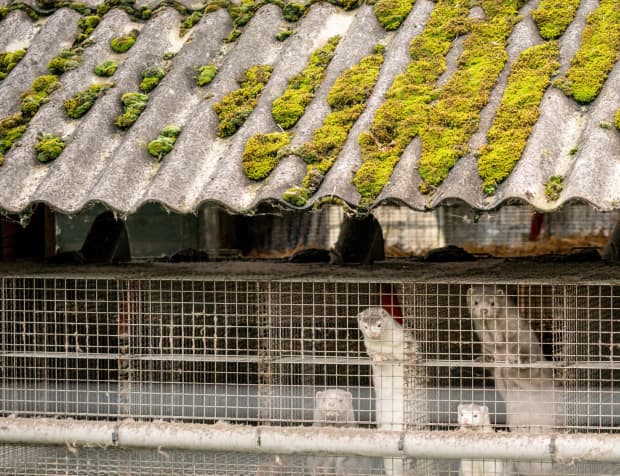This post was originally published on this site

Mink are seen at a farm in Gjol, northern Denmark.
mads claus rasmussen/Agence France-Presse/Getty Images
Denmark plans to cull its entire mink population of up to 17 million after a mutation of the coronavirus found in the animals spread to humans, potentially lowering the efficacy of future vaccines, the government said.
Health authorities found five cases of the new virus strain had been recorded on mink farms and 12 cases in humans, Magnus Heunicke, Denmark’s minister for health, said in a statement on Thursday.
Prime Minister Mette Frederiksen said at a news conference on Wednesday that there were now concerns that the new, mutated virus posed a “risk to the effectiveness” of a future COVID-19 vaccine.
“It is very, very serious,” Frederiksen said. “Thus, the mutated virus in minks can have devastating consequences worldwide.”
Laboratory tests by the State Serum Institute found that that the mutated form of the virus has shown reduced sensitivity to antibodies, potentially lowering the efficacy of future vaccines, Heunicke said.
However, Heunicke stressed that there is “no evidence that those people infected with this mutation experience a more serious disease.”
The U.S. Centers for Disease Control and Prevention has said that based on the limited information available to date, “the risk of animals spreading COVID-19 to people is considered to be low.”
Mogens Jensen, Denmark’s minister for food and fisheries, said the first mink farms in Northern Jutland were found infected with COVID-19 in June, and the virus has since spread to 207 farms spread across Jutland.
Read: A mink may have infected a second Dutch worker with coronavirus, agriculture minister says
Denmark is the world’s second biggest farmer of mink — which are prized for their fur pelts — after China.
Jensen said he was “painfully aware” of what the cull means for Danish mink farmers “who are about to lose their livelihood and for some their entire life’s work.”
“But it is the right thing to do in a situation where the vaccine, which is currently the light at the end of a very dark tunnel, is in danger,” he added.
The World Health Organization (WHO), which is investigating whether animals can transmit the disease to humans, said in a tweet that it was in touch with the Danish authorities to find out more about the event.
“The government in Denmark has made a decision they did not want to, but public safety must come first,” Mick Madsen, head of communications for Fur Europe, the Brussels-based umbrella organization for the European fur industry, said.
“Now the Danish authorities must release their research for scrutiny amongst international scientists,” Madsen added.
A Reuters report on Thursday said that some lawmakers were questioning Denmark’s the decision to cull the country’s entire mink population, which could cost the state more than $800 million, demanding to see the evidence behind the decision.
Francois Balloux, director of the University College London Genetics Institute and chair in computational systems biology, raised concerns about the findings.
“There are thousands of mutations in SARS-CoV-2 arising constantly,” he said in a Tweet on Wednesday. “The fact that a few have been observed in minks will not change the strains in circulation in humans. If they were beneficial for the virus to infect its human host, they would be at high frequency already.”
The Danish government said the country’s police, army and home guard will be deployed to accelerate the culling process. It said mink breeders who cull their herds within 10 days — or 5 days for herds under 7.500 animals, will receive increased compensation.


